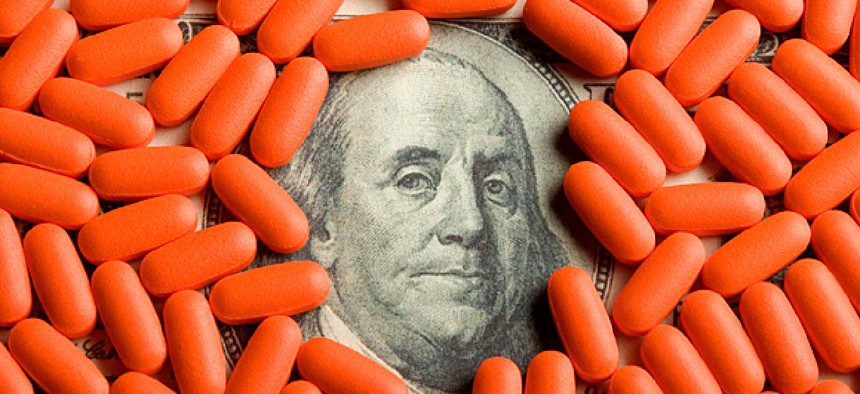
Thinkstock
Military retirees see TRICARE fee hike
Many enrollees will pay 17 percent more in annual fees in fiscal 2013.
Many military retirees will pay 17 percent more in annual TRICARE enrollment fees in fiscal 2013.
The new rates, which took effect Oct. 1, increase the amount military retirees pay in health care fees by 3.6 percent or 17 percent, depending on when they enrolled in TRICARE Prime. Those who enrolled in the program before Oct. 1, 2011, will see the biggest hike; rates for beneficiaries enrolled after that date will increase more modestly because that group already has been paying more for health care.
The 2012 National Defense Authorization Act allows for the annual increase of TRICARE Prime enrollment fees for most retired beneficiaries based on the annual cost-of-living increase.
As of Oct. 1, all TRICARE Prime enrollees will pay an annual fee of $269.28 for individual coverage while those with the family plan will pay $538.56 per year under the adjustment. That’s an increase of $39.28 per year for those enrolled before Oct. 1, 2011, with individual coverage, and a hike of $78.56 per year for the same group of enrollees with the family plan. Those enrolled after Oct. 1, 2011 -- considered new enrollees -- already were paying higher annual enrollment fees ($260 for individual and $520 for family), so their rates will increase too, but not by as much. That group will pay $9.28 more per year for individual coverage and $18.56 more for dependent coverage.
Beneficiaries can pay the fee in one lump sum, or on a quarterly or monthly basis. Active-duty service members and their dependents in TRICARE Prime do not pay enrollment fees.
TRICARE costs are a politically sensitive issue. The expense to the government of providing military health care has more than doubled in the past 12 years and is the priciest “noncash” benefit the Defense Department provides to service members, retirees and their families. The Obama administration has proposed increases to TRICARE enrollment fees, based on retirement income, and some modest hikes to co-pays and other fees. Lawmakers from both political parties so far have rejected Obama’s proposals.
TRICARE Prime retirees aren’t the only ones in the military health care system who experienced out-of-pocket increases as of Oct. 1. Enrollees in the military’s Continued Health Care Benefit Program will see their premiums increase between $73 and $165 per quarter. The CHCBP offers temporary transitional health care coverage for 18 to 36 months after TRICARE eligibility ends. Basically, it acts as a bridge between military health benefits and an enrollee’s new civilian health plan. The fiscal 2013 quarterly premiums are $1,138 for individuals and $2,555 for families. The current premiums are $1,065 per quarter for individuals and $2,390 per quarter for families.
As for enrollees in the Federal Employees Health Benefits Program, their premiums will increase an average of 3.4 percent in 2013, the Office of Personnel Management announced late September. Of that increase, government contributions will rise 3.3 percent while participants will pay 3.7 percent more in 2013. In dollars, that means FEHBP enrollees with self-only coverage will pay on average $2.75 more per biweekly pay period and enrollees with family coverage will pay an average of $6.39 extra per pay period. Changes in the enrollee share of premiums vary from plan to plan. The government pays on average about 70 percent of health benefits premiums. The FEHBP premium changes will take effect in January 2013.







